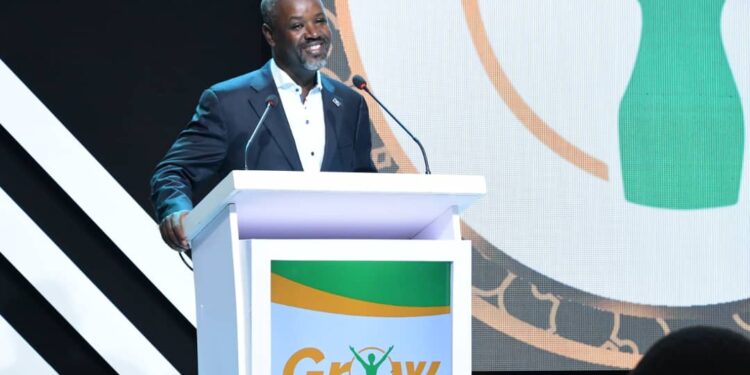The Deputy Speaker of Parliament, Rt. Hon. Thomas Tayebwa has called for an enhancement of child support and empowerment of women.
During a high-level dialogue on childcare and women’s entrepreneurship, organized by the Ministry of Gender, Labour, and Social Development (MGLSD) at MoTIV in Bugolobi on Friday, Tayebwa emphasized that for the country to progress, women and children must have a voice in decision-making processes. The event also marked the launch of two important studies that shed light on the challenges and regulatory gaps within Uganda’s childcare sector.
In a discussion with participants, including senior representatives from the World Bank, Tayebwa highlighted the urgent need for comprehensive childcare support, specifically for children under three years of age. He stated, “These studies provide an essential evidence base to guide important legislative, policy, and financing decisions necessary for addressing the gaps in childcare services.”
The Deputy Speaker highlighted key statistics from the Uganda Bureau of Standards (UBOS) and the Ministry of Trade, revealing that women own 33% of micro, small, and medium enterprises (MSMEs) in Uganda, contributing 32% to the Gross Domestic Product (GDP). However, he noted that a significant barrier to women’s increased economic participation is the lack of accessible childcare. “With supportive childcare infrastructure, women’s labour force participation could significantly increase, empowering them to contribute even more robustly to national productivity,” he remarked, citing a 2023 World Bank Gender Innovation Lab study.
Tayebwa drew from personal experiences, reflecting on the resilience of women entrepreneurs who balance demanding roles as business owners and caregivers. “I have witnessed firsthand the dedication of our women, trekking long distances with children in tow and working tirelessly to sustain their businesses,” he said. He underscored the potential economic impact of subsidizing childcare, referencing a 2022 field experiment by the Centre for Economic Policy Research, which showed a 44% increase in business revenue for women receiving in-kind childcare subsidies.
The dialogue also focused on the upcoming Employment (Amendment) (No.2) Bill 2022, which awaits presidential assent. The bill proposes mandatory breastfeeding and childcare facilities for workplaces with at least 50 employees, a move Tayebwa believes will significantly ease the burden on working mothers. “This legislation aims to provide essential facilities for postpartum employees, enhancing the well-being of both mothers and their children,” he explained.
He lauded initiatives like the GROW project for their efforts to provide skills training, affordable credit, and gender-sensitive infrastructure, including childcare support for women entrepreneurs. Tayebwa called for a deliberate and pragmatic approach to tracking the impact of such initiatives, ensuring measurable improvements in employment, productivity, and profitability.
Reflecting on the government’s long-standing commitment to women’s empowerment, Tayebwa noted, “Since 1986, the NRM government has prioritized interventions to remove barriers facing women, aligning with our manifesto’s vision of inclusive growth and equitable development.” He emphasized that supporting women-owned businesses aligns with Uganda’s Private Sector Growth Strategy, which aims to transition enterprises from micro and small-scale to medium and large-scale, driving economic inclusivity and stability.
The Deputy Speaker concluded by expressing optimism about the findings of the studies, urging policymakers to translate recommendations into concrete actions. He reaffirmed his commitment to championing the childcare agenda in Parliament, stating, “I commit to taking this agenda forward. Research alone is not enough; we must fully actualize these recommendations to bring about real change.”
The Ministry of Gender, Labour, and Social Development Betty Among highlighted the need to establish national standards for childcare facilities. “One critical element we’ve identified is the lack of National Standards for the establishment and management of childcare facilities for children below three years. Together with my team and relevant ministries, we are committed to developing these standards to guide investments and interventions, and we have already begun this vital work.”
According to Among, the new studies presented at the dialogue provide insights into the gaps in childcare services for children under three years old. The official pointed out the potential economic benefits of addressing these gaps. “Providing access to childcare services for women entrepreneurs eliminates a major barrier to their competitiveness. It grants them the freedom to explore new markets, innovate, and build networks, fueling their business growth and fostering a more inclusive economy.”
Meanwhile, the high-level dialogue set the stage for renewed efforts to enhance childcare support, empowering women entrepreneurs and boosting Uganda’s economic growth.
Do you have a story in your community or an opinion to share with us: Email us at editorial@watchdoguganda.com













